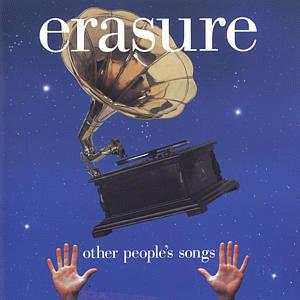
| Artist: | Erasure |
| Title: | Other people's songs |
| Released: | 2003.01.28 |
| Label: | Mute Records |
| Time: | 41:11 |
| Producer(s): | Gareth Jones |
| Appears with: | |
| Category: | Pop/Rock |
| Rating: | *******... (7/10) |
| Media type: | CD |
| Purchase date: | 2003.11.11 |
| Price in €: | 18,99 |
| Web address: | www.erasureinfo.com |